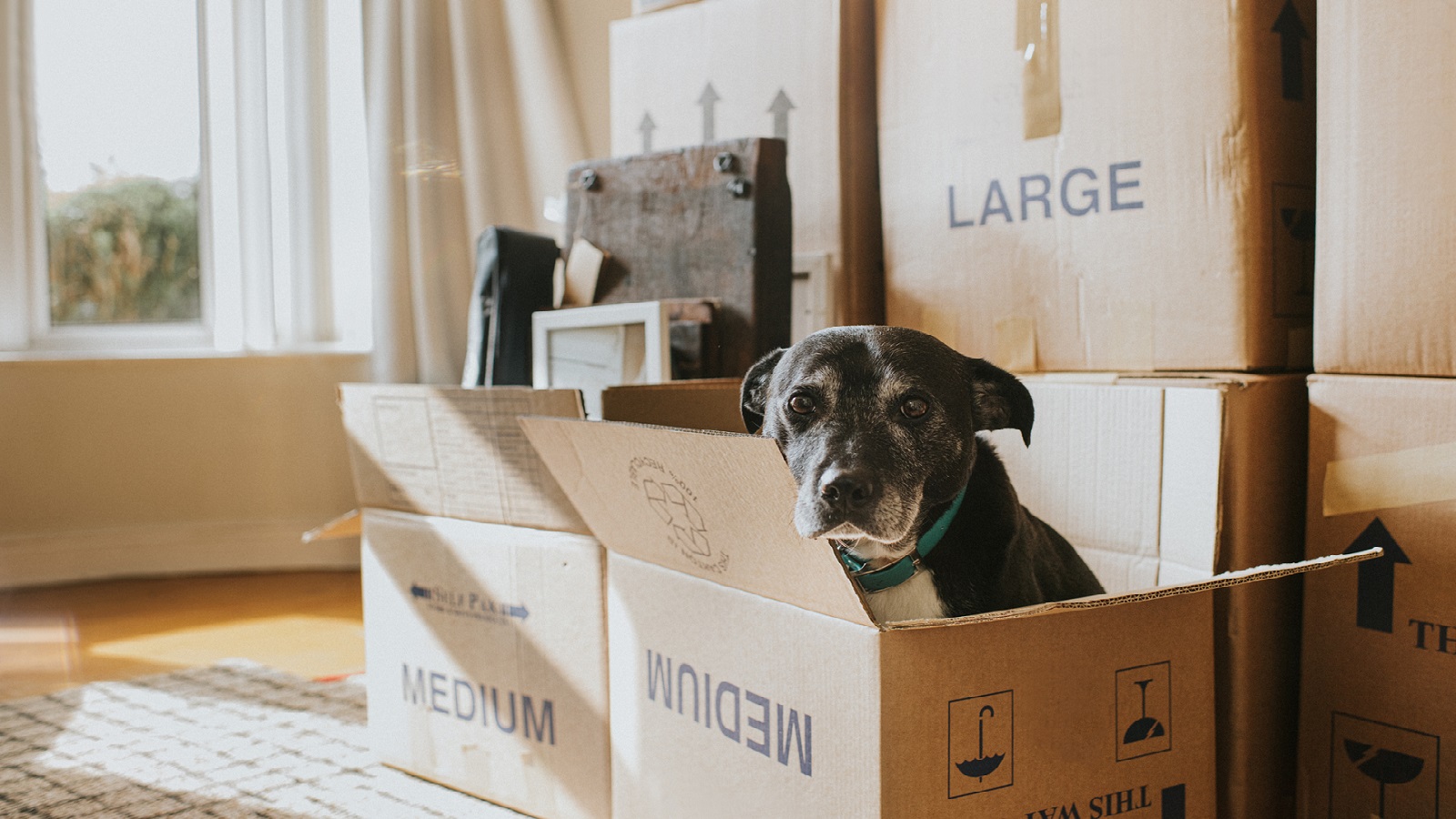How Much Does It Cost to Move?
Moving is expensive and budgeting for a move is crucial when you're planning to rent or buy a property. Here's what you need to know.


Profit and prosper with the best of Kiplinger's advice on investing, taxes, retirement, personal finance and much more. Delivered daily. Enter your email in the box and click Sign Me Up.
You are now subscribed
Your newsletter sign-up was successful
Want to add more newsletters?

Delivered daily
Kiplinger Today
Profit and prosper with the best of Kiplinger's advice on investing, taxes, retirement, personal finance and much more delivered daily. Smart money moves start here.

Sent five days a week
Kiplinger A Step Ahead
Get practical help to make better financial decisions in your everyday life, from spending to savings on top deals.

Delivered daily
Kiplinger Closing Bell
Get today's biggest financial and investing headlines delivered to your inbox every day the U.S. stock market is open.

Sent twice a week
Kiplinger Adviser Intel
Financial pros across the country share best practices and fresh tactics to preserve and grow your wealth.

Delivered weekly
Kiplinger Tax Tips
Trim your federal and state tax bills with practical tax-planning and tax-cutting strategies.

Sent twice a week
Kiplinger Retirement Tips
Your twice-a-week guide to planning and enjoying a financially secure and richly rewarding retirement

Sent bimonthly.
Kiplinger Adviser Angle
Insights for advisers, wealth managers and other financial professionals.

Sent twice a week
Kiplinger Investing Weekly
Your twice-a-week roundup of promising stocks, funds, companies and industries you should consider, ones you should avoid, and why.

Sent weekly for six weeks
Kiplinger Invest for Retirement
Your step-by-step six-part series on how to invest for retirement, from devising a successful strategy to exactly which investments to choose.
How much does it cost to move? The total cost of moving can be easy to overlook when you're searching for your dream home. There are so many expenses that seem more immediate when you need a new place to live that it's easy to forget that once you find the where, you need to budget for the how.
Specifically, how are you going to move and what is it going to cost you?
Packing and moving your possessions from one location to another can be extremely costly. Whether you opt for professionals or pack and load yourself is an important consideration in terms of budget. Other factors that determine cost include the size of your home and how far you’re moving.
From just $107.88 $24.99 for Kiplinger Personal Finance
Become a smarter, better informed investor. Subscribe from just $107.88 $24.99, plus get up to 4 Special Issues

Sign up for Kiplinger’s Free Newsletters
Profit and prosper with the best of expert advice on investing, taxes, retirement, personal finance and more - straight to your e-mail.
Profit and prosper with the best of expert advice - straight to your e-mail.
Here, we take a look at how much it costs to move and explain whether it's best to hire movers or do all the work yourself.
How much does it cost to move?
Moving yourself generally costs a lot less than hiring professionals, but it's still not cheap.
“Hiring professionals for a local move costs around $1,800, whereas costs for long-distance movers are usually around $2,500,” said Cristina Miguelez, remodeling specialist for Fixr.
“To move DIY, expect to pay anywhere between $150 and $2,500 depending on the costs to rent a moving truck, the amount of belongings to be moved, and the distance traveled between homes," Miguelez said.
What is the cost of professional movers?
The cost of hiring professional movers will depend on the distance of the move, the weight of your belongings, and any additional services you might need, such as packing and unpacking.
It's more expensive to move from say, a large 4-bedroom house, than a 1-bedroom apartment due to the need for more movers and more time to complete the move, Miguelez said.
Here is a breakdown of what you can expect to pay for movers, including costs based on distance and on the number of bedrooms in the home you are moving from.
- 250-mile move: One bedroom house, $750 to $1,500; two to three bedroom house, $1,000 to $1,750; four to five bedroom house, $1,500 to $2,500
- 1,000-mile move: One bedroom house, $1,500 to $3,000; two to three bedroom house, $2,000 to $8,000; four to five bedroom house, $4,000 to $10,000
- 2,500-mile move: One bedroom house, $2,750 to $6,000; two to three bedroom house, $3,250 to $8,000; four to five bedroom house, $5,000 to $15,000
This is only a rough guide, so be sure to get a range of quotes from reputable local companies. Also, compare what each firm’s service entails and consider whether you’ll need any additional help with tasks like furniture reassembly or appliance installation.
“A professional moving company generally includes packing, loading, transportation, unloading and unpacking in the appropriate rooms of the destination home,” Miguelez said. "Some full-service companies include disassembly and reassembly, if you have large items such as furniture that need to fit through doorways or down narrow staircases."
As such, it’s hard to pin down an exact cost for a move, as it depends on a range of factors. The best course of action is to speak directly with the moving company to see what services they think you will need. Then you will be able to look at accurate, comparable quotes to determine the cheapest way of moving.
“Labor-only services will load your belongings onto a truck and unload them at your destination,” Miguelez said. “Full-service movers will take care of every aspect of the moving process, including packing, loading, transporting, unloading and unpacking your belongings. Labor-only services will cost between $600 and $2,500, whereas the costs for full-service movers can range from $2,000 to $8,000.”
The use of moving supplies like stretch wrap, felt pads, and mattress bags provided by the movers is also a factor to consider as it could ramp up the cost. Consider keeping hold of your own materials to use for moving and packing.
What is the cost of moving on your own?
Taking on the work yourself can save you a decent amount of money, but is time intensive. In addition to the extra workload, there are a number of costs to consider.
DIY moving requires paying for a moving truck and fuel, as well as hotels and meals if you are traveling a long distance, Miguelez said. She estimates the average cost to rent a moving truck is between $650 and $2,500 depending on circumstances.
One possible compromise is to do some of the moving yourself. You could hire a shipping container, which is delivered for you to pack and then transported to your new location. The average cost of moving this way ranges from $800 to $3,000, according to Fixr.
Another option to consider is booking a freight service to ship your belongings The average cost is $2,000 to $6,000, according to Fixr.
Other DIY costs to budget for: large box, $3 to $4; a wardrobe box, $8 to $20; a glass packing box, $10 to $20; bubble wrap, $10 to $50; and protective wrapping paper $10 to $50.
“The size of your home will determine what size truck you will need to move your belongings, meaning the larger the home, the higher the costs will be to rent a moving truck,” Miguelez said.
What is the most inexpensive way to move?
The most inexpensive way to move is generally to hire a rental truck and do it yourself, but that is not guaranteed. The accumulated costs associated with doing the move yourself could spiral. Additionally, you’ll have fewer hands to help out if any problems arise.
If you opt for a moving company, be sure to get a range of quotes so you can get the best deal on the services you need.
What should I pack first when moving?
The most efficient way to pack up your belongings is to start with non-essentials and items that are already stored away. Out-of-season items, such as Christmas decorations, can be packed early, too. Books are also a good one to get out of the way as they are easy to stack and pack.
It’s also worth deciding whether there are any items or pieces of furniture that won’t be coming with you on the move. This means you can sell, donate or dispose of them before you become too busy with tackling the bulk of the move.
Related Content
Profit and prosper with the best of Kiplinger's advice on investing, taxes, retirement, personal finance and much more. Delivered daily. Enter your email in the box and click Sign Me Up.

Tom is a journalist and writer with an interest in sustainability, economic policy and pensions, looking into how personal finances can be used to make a positive impact. He graduated from Goldsmiths, University of London, with a BA in journalism before moving to a financial content agency. His work has appeared in titles Investment Week and Money Marketing, as well as social media copy for Reuters and Bloomberg in addition to corporate content for financial giants including Mercer, State Street Global Advisors and the PLSA. He has also written for the Financial Times Group.
When not working out of the Future’s Cardiff office, Tom can be found exploring the hills and coasts of South Wales but is sometimes east of the border supporting Bristol Rovers.
-
 Quiz: Do You Know How to Avoid the "Medigap Trap?"
Quiz: Do You Know How to Avoid the "Medigap Trap?"Quiz Test your basic knowledge of the "Medigap Trap" in our quick quiz.
-
 5 Top Tax-Efficient Mutual Funds for Smarter Investing
5 Top Tax-Efficient Mutual Funds for Smarter InvestingMutual funds are many things, but "tax-friendly" usually isn't one of them. These are the exceptions.
-
 AI Sparks Existential Crisis for Software Stocks
AI Sparks Existential Crisis for Software StocksThe Kiplinger Letter Fears that SaaS subscription software could be rendered obsolete by artificial intelligence make investors jittery.